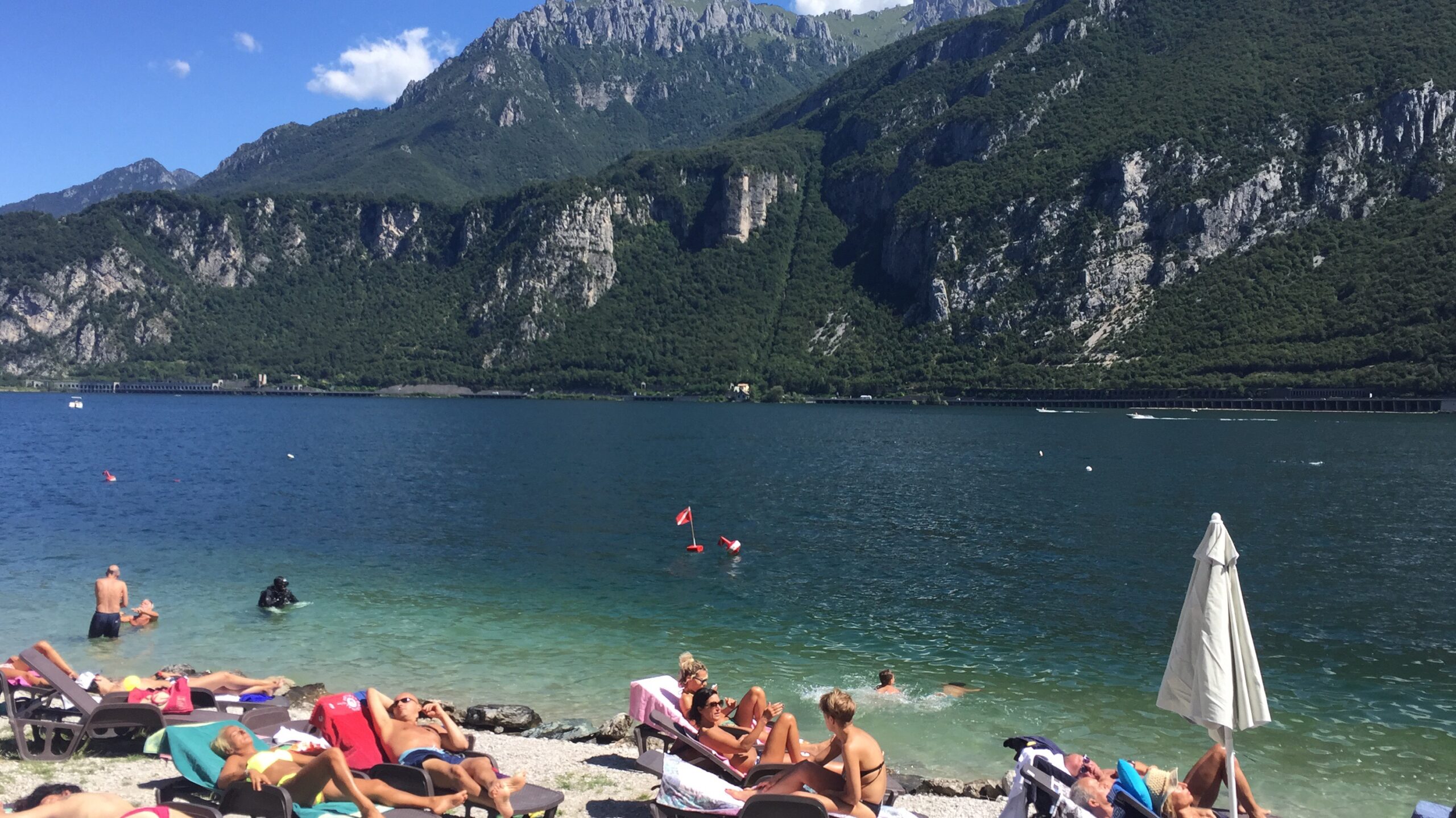I often talk to freedivers, at all levels, who have never dived into lakes. From the earliest approaches to this wonderful sport the images suggested to our students are those of warm seas, crystal clear waters, reefs teeming with life and brilliant colours. Our lakes, let’s face it, do not exactly match this cliché but they are non the less fascinating. Let’s start by saying that the landscapes have nothing on the most exclusive exotic destinations: we certainly won’t find palm trees and fine sand beaches, but large and small Italian lakes often offer breathtaking views. When we talk about diving then things change.
The counter-arguments most frequently used by those freedivers used to salty water are: “it’s cold,” “it’s dark,” “there is nothing to see down there.” Am I wrong or someone once said that the freediver dives to look inside himself? If we overcome the psychological barrier coming from the environmental conditions, we will only need a few things to be able to train in comfort and safety: a suit that protects us from cold, a lanyard even for shallow dives, where possible a small torch on the mask in order to see and to be seen also in really poor visibility conditions. Still not sure?

Think about the benefits should come from training into a lake: 1) if you are not so lucky to live by the sea or close to te sea, a lake is a very good alternative to practice freediving for most of the year; 2) For exemple, in the Northern Italy there is a huge number of deep lakes: I dived into Garda, Maggiore, Iseo, Orta, Lugano Lake and I feel at home into the Como Lake, the deepest lake in Italy with its 410 meters depth. In most cases very deep spots are located just a few meters from the shore, so the divers don’t need a boat to get there, saving time and money; 3) The lake is extraordinary gym: if you can reach concentration and relaxation while diving in freshwater, I assure you, everything will be much easier when you’ll go to the sea.
Talk soon!
Nicola